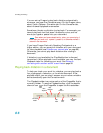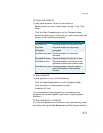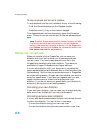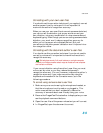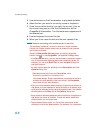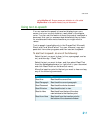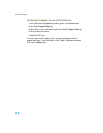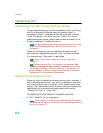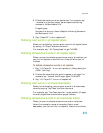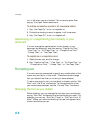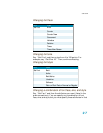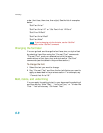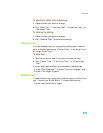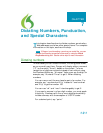
Formatting
94
Capitalizing text
Capitalizing first letter of next word you dictate
Dragon capitalizes many words automatically, such as the first
word in a sentence (following a period, question mark, or
exclamation mark). It capitalizes the first word after you say
“New Paragraph” (not when you say “New Line”) and it
capitalizes proper names (when these words are already in the
Dragon vocabulary in capitalized form).
You can change the spacing and capitalization rules for a word
in the Word Properties dialog box. See the online help for more
information.
When you’re dictating, you can capitalize words that aren’t
automatically capitalized by saying “Cap” and then the word.
For example, say “Cap zelda” to get Zelda.
If saying “Cap <word>” doesn’t work, try say “Cap Next
<word>.”
To dictate the word “cap,” for example, in this sentence: The
company is putting a cap on salary increases, you must say
“the company is putting a” then say “Spell c-a-p,” and then say “on
salary increases.” In this way, Dragon knows that you do not want to
capitalize any of the words within the sentence.
Capitalizing consecutive words
When you want to capitalize consecutive words (for example, if
you’re dictating a book title), you can turn capitals on and then
turn them off when you’re finished. This is usually easier than
saying “Cap” before each word. Another way to do consecutive
capitalization is to dictate the words, pause, and then say
“Capitalize That” or “Cap That.”
To capitalize the first letters of consecutive words:
1 Say “Caps On” to turn capitals on.
When “Caps On” is active, Dragon uses title case. This means it
capitalizes the first letters all words except for articles and prepositions
(such as “the” and “to”).
NOTE:
TIP:
TIP:
NOTE:



